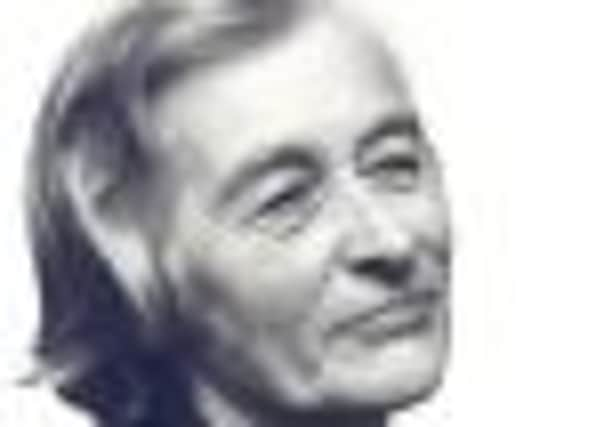Obituary: Professor Phyllis Deane, economic historian


PHYLLIS Deane, who has died aged 93, was born in colonial Hong Kong, educated in Glasgow and went on to become one of the UK’s most influential experts and authors on economic history, notably Britain’s industrial revolution. After a 60-year association with the University of Cambridge, she was Emeritus Professor of Economic History at the university when she died.
Phyllis Mary Deane was born in Hong Kong on 13 October, 1918, a month before the Great War in Europe ended. Her father was an engineer with the Admiralty who, after postings throughout the British Empire, settled in Glasgow after the war. She went to Hutcheson’s Girls’ Grammar School – “Hutchie,” as she and fellow pupils called it – on Kingarth Street, Pollokshields before gaining an MA in economics and history at Glasgow University in 1940. Linking those two subjects would become her life as she became both an economist and a historian.
Advertisement
Hide AdAdvertisement
Hide AdAt Glasgow University, her first great influence was William R Scott, the Adam Smith Professor of Political Economy, best-known for his three massive volumes (published from 1910-12) titled The Constitution and Finance of English, Scottish and Irish Joint-Stock Companies to 1720.
Prof Scott died suddenly the year Deane graduated. By then, she had also fallen under the educational spell of a prodigious young lecturer from Lesmahagow, the son of an ironmonger, who had returned to Glasgow from Trinity College, Cambridge, and was barely six years older than her. He was Alexander Kirkland Cairncross, later to be Sir Alec, an economist strongly influenced by John Maynard Keynes. Cairncross, himself a graduate of Glasgow, was “captivatingly brilliant,” she once said, and she would go on to follow his footsteps as an economic historian at Cambridge.
After leaving Glasgow, Deane moved to London, where she spent the war years as a research officer for the National Institute of Economic Research. After the war, she undertook a similar job for the Colonial Office, spending time in Nigeria and what were then Northern Rhodesia and Nyasaland. In 1950, she was invited to join the Department of Applied Economics at Cambridge, which had been established with Maynard Keynes in mind as director before he died in 1946.
At Cambridge, Deane quickly took on the mantle of Keynes and Cairncross, producing two jointly-authored books that defined the changing realities of economics in Britain and became essential textbooks for students in that field. British Economic Growth, 1688-1959, was written with WA (Max) Cole. Abstract of British Historical Statistics (published in 1962) was co-authored with BR Mitchell and both books were considered breakthroughs in the history of the British economy. To this day, lecturers will quote “Deane and Cole” or “Mitchell and Deane.”
Deane went solo with The First Industrial Revolution (1965), which became and remains a key textbook, oft-times reprinted, for students of economic history. Her 1978 book The Evolution of Economic Ideas was the first in the Modern Cambridge Economics series, a series she went on to co-edit with Joan Robinson. Her last book was a 2001 biography of Maynard Keynes’s father, entitled The Life and Times of J. Neville Keynes, who was a significant political economist in his own right.
After 11 years in Cambridge’s Department of Applied Economics (1950-61), Deane spent ten years as a lecturer in Economics (1961-71), often citing her mentor Cairncross. For the next ten years, until 1981, she was Reader in Economic History before being appointed Professor of Economic History. Despite these important posts, she was always happier researching than teaching, according to friends. On her formal retirement in 1983, she was named Emeritus Professor. She was also a Fellow and later, from 1980, Honorary Fellow of Newnham College, Cambridge. In 1980, she was named a Fellow of the British Academy.
Deane was editor of the Economic Journal, published by the Royal Economic Society, from 1968-75 (Maynard Keynes himself had been a longtime editor) and she was president of that society from 1980-82. In 2010, when she was already in her nineties, she was made a Distinguished Fellow of the History of Economics Society in the United States “for devoting a lifetime of study to the history of economics”.
Phyllis Deane’s longtime companion Joan Porter died several years ago. Prof Deane herself died peacefully in Cottenham Court care home, Cambridge, on 28 July.
PHIL DAVISON